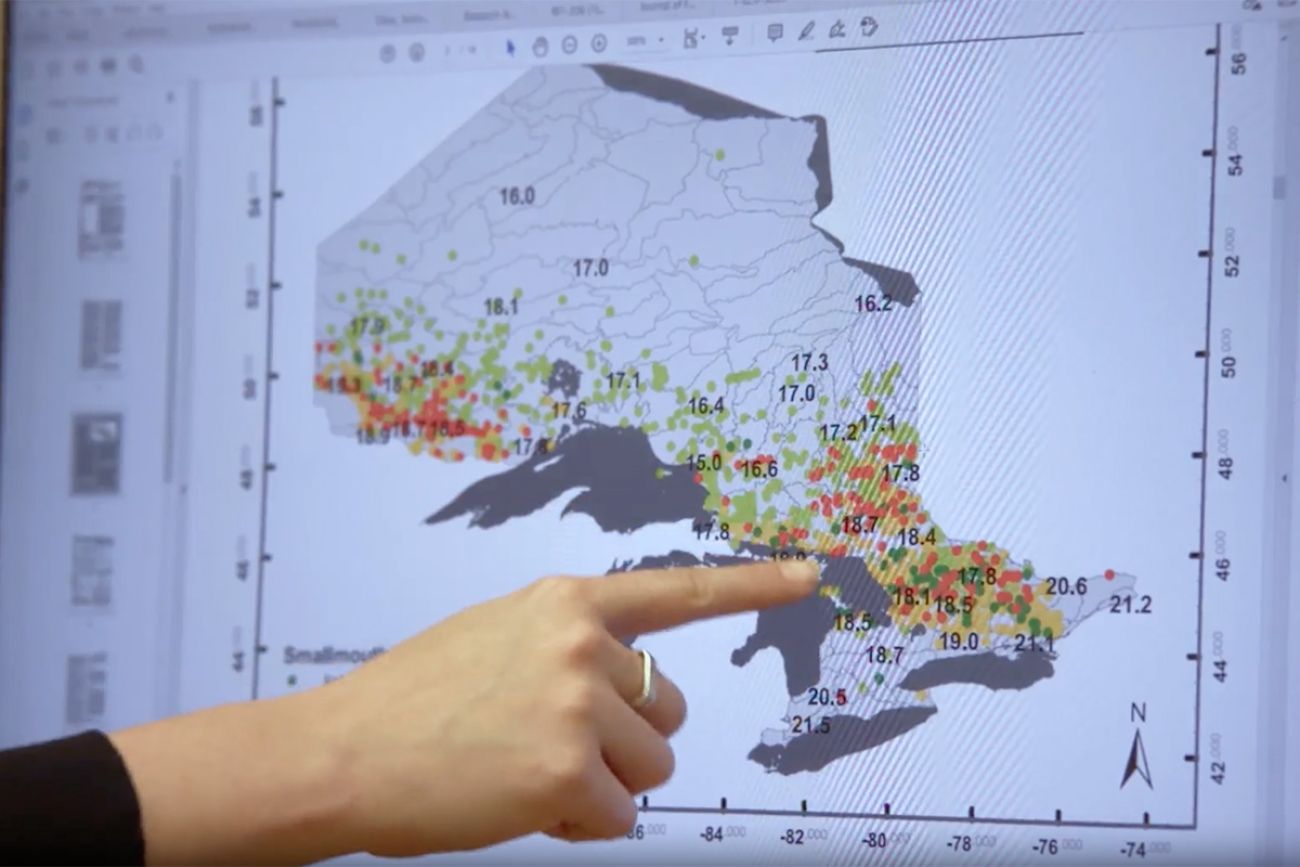Climate change threatens fish in Michigan’s Great Lakes. Watch video

- Great Lakes fish are relatively young, evolutionarily speaking, but have faced many crises
- The latest is climate change, a U-M professor says
- The lakes are home to 150 species of fish and warmer temperatures threaten whitefish, burbot and others
Geologically speaking, the Great Lakes and the aquatic life within them are relatively young at a few thousand years old. Yet in their short life, they’ve contended with many changes, from invasive species to overfishing.
Now, climate change poses a new existential threat.
As fossil fuel consumption heats the world’s atmosphere, the fallout extends to a Great Lakes ecosystem that’s home to 150-plus native fish.
Related:
- In warming Great Lakes, climate triage means some cold waters won’t be saved
- EPA to decide soon on Ohio plan to reduce phosphorus pollution in Lake Erie
- Chicago suburbs, running out of water, will tap Lake Michigan
Warming waters are already changing the distribution of freshwater fish in the basin, causing warm water fish like bass to move into areas that formerly were too cold for them to thrive.
And conversely, warming temperatures threaten the future of cold water fish like whitefish and burbot, which spawn on ice-covered Great Lakes reefs.
But as those threats unfold, “humans can have a lot of impact on preserving that biodiversity,” said Karen Alofs, an assistant professor at the University of Michigan who studies the impacts of warming temperatures on fish in the Great Lakes.
Work to preserve Michigan’s native fish ranges from efforts to cool the streams that flow into the Great Lakes by planting shade trees and removing dams, to habitat restoration and invasive species prevention efforts that aim to ease other threats to the fish so they can better withstand warming waters.
And amid the threat of warming, species managers in Michigan aren’t giving up hope of returning a native Goldwater fish already lost to human forces. The state is seven years into an effort to reintroduce Arctic grayling to Michigan’s rivers.
About the author
Aaron Martin is a documentary filmmaker based in Canton, Michigan. This story was produced in partnership with the Pulitzer Center’s Connected Coastlines, a nationwide climate reporting initiative.
Michigan Environment Watch
Michigan Environment Watch examines how public policy, industry, and other factors interact with the state’s trove of natural resources.
- See full coverage
- Subscribe
- Share tips and questions with Bridge environment reporter Kelly House
Michigan Environment Watch is made possible by generous financial support from:
Our generous Environment Watch underwriters encourage Bridge Michigan readers to also support civic journalism by becoming Bridge members. Please consider joining today.
See what new members are saying about why they donated to Bridge Michigan:
- “In order for this information to be accurate and unbiased it must be underwritten by its readers, not by special interests.” - Larry S.
- “Not many other media sources report on the topics Bridge does.” - Susan B.
- “Your journalism is outstanding and rare these days.” - Mark S.
If you want to ensure the future of nonpartisan, nonprofit Michigan journalism, please become a member today. You, too, will be asked why you donated and maybe we'll feature your quote next time!






